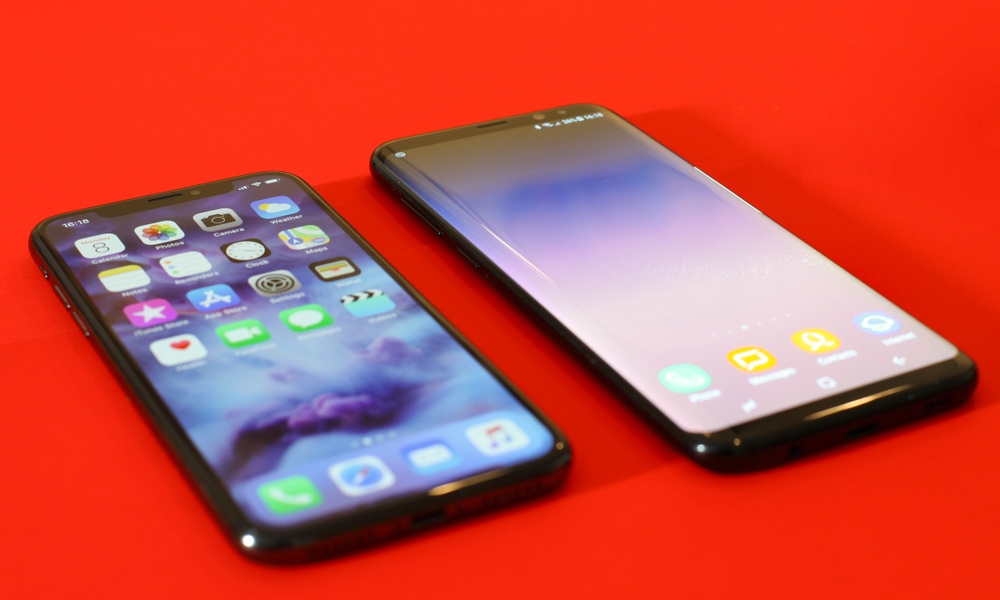Are iPhone Download Speeds Actually Slower Than Android?

Nebojsa Markovic / Shutterstock
Toggle Dark Mode
New internet speed tests are being used by Apple’s rivals to take shots at the iPhone — but are they accurate?
The data comes from Ookla LLC, a third-party firm that makes the Speedtest app and website. Speedtest has become a popular platform for users to measure their own internet connection speeds.
As Bloomberg points out, Ookla’s data comes from billions of tests by real-world users — not lab-based or sponsored testing. That’s important because it takes into account a ton of conditions that might otherwise affect a sterling connection speed, like network congestion and the distance a device is from cell towers.
The most recent speed data, collected between April and June 2018, shows that Apple’s current iPhone lineup lags behind its closest competitors in terms of internet download speeds.
Bloomberg reviewed the most recent results, which were an average in megabits-per-second (Mbps) across U.S. carriers. They can be seen below.
- Samsung Galaxy S9: 38.9 Mbps
- Samsung Galaxy S9+: 37.4 Mbps
- Google Pixel 2: 34.4 Mbps
- Google Pixel 2 XL: 33.9 Mbps
- Apple iPhone X: 29.7 Mbps
- Apple iPhone 8: 29.4 Mbps
- Apple iPhone 8 Plus: 28.6 Mbps
As you can see, Apple’s flagship iPhone X was nearly 10 megabits-per-second slower than Samsung’s S9. For the top-tier price point, that doesn’t exactly bode well for the Cupertino tech giant.
Apple’s competitors were, of course, extremely quick to take these results and use them to bash the company’s devices. A new series of ad spots by Samsung make the slower results a key talking point.
San Diego-based chipmaker Qualcomm also published a blog post touting the “better” performance of its Snapdragon 845 CPU, which is used in many flagship Android devices. It directly compared the Snapdragon to the Intel XMM 7480, which is used in some iPhone X models.
It’s a curious result when you consider that Apple iPhones typically perform much better than rival Android devices in terms of system performance. That’s true even though Android flagships tend to “look better” on paper, with higher specifications.
But system speeds and download speeds are two different metrics. While iPhones undoubtedly load apps and render graphics much faster, these results suggest they’re slower at pulling up web pages, receiving high-quality video, or sending emails.
Of course, it’s worth noting a couple things before taking these undoubtedly anti-Apple ads at face value.
For one, there tends to be variation in actual connection speeds for iPhones. That’s largely due to the fact that different manufacturers produce different components, based on the exact iPhone model.
For example, iPhones on Sprint and Verizon use models made by Qualcomm, while iPhones on AT&T and T-Mobile use Intel modems. Qualcomm chips tend to be faster, but Apple uses software measures to scale back the Qualcomm speeds so they’re more similar to the Intel speeds, Bloomberg reported.
And it’s worth noting that the Samsung Galaxy S9 and S9+ are more recent devices than Apple’s 2017 lineup. Because of that, they come equipped with newer hardware and technology.
Apple is only a couple months away from debuting its 2018 iPhone lineup, which among other features, will include upgraded LTE technology.
Previous rumors suggest that the devices could sport improved antenna tech, dual-SIM standby functionality, and improved LTE chips. In other words, they’ll be able to compete much better with current Android flagships.
Not that the lackluster test results are exactly hurting Apple’s market share and bottom line. The company’s doing perfectly well for itself. And an Apple spokesperson noted that new iPhones sport 27 bands of LTE, providing better coverage than any other smartphone currently on the market.






